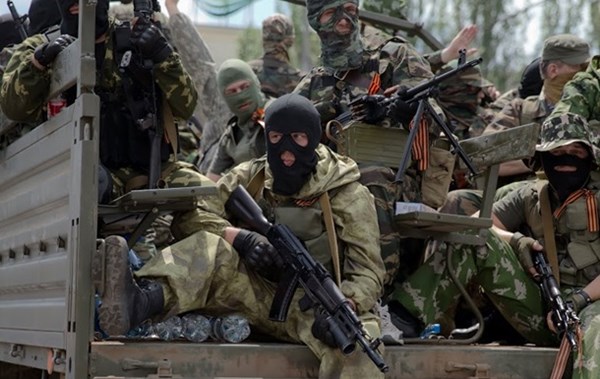Destabilizing factor: Why Russia needs the separatist-held territories of eastern Ukraine
Moscow has the return of the separatists controlled territories of the Luhansk and Donetsk regions back to the jurisdiction of Ukraine on its agenda, but only under Russian conditions. Right now Russia does not need a large-scale attack by the separatist troops in the Donbas or the escalation of hostilities.
The intention of the Russian Federation is to create a zone of a permanent social and military tension within Ukraine by returning these territories on the condition of the federalization of Ukraine, or by granting a special status to the separate areas of the Donetsk and Luhansk regions, which will allow them to block any decision by the central government regarding European relations with Ukraine and its integration into the European Union.
Russia is following the same plan that it utilized in Abkhazia, South Ossetia and Transnistria - capture a specific area, create a pro-Russian administration, and then freeze the conflict in order to maintain constant tension in the country.
The announcement by the parties to the conflict of the so-called ceasefire agreement is a purely political decision, not a military one.
Each party to the conflict is trying to demonstrate their commitment to the implementation of the Minsk Agreements and accuse the other side of committing violations. The rhetoric about the violation of the ceasefire and the disruption of the process of heavy weapons withdrawal by the separatists and Russian Armed Forces is necessary for Ukraine as an argument for its Western partners so they will continue economic sanctions against Russia. Accordingly, Russia is trying to blame Ukraine for the failure of the Minsk Agreements (even more - that Ukraine is violating its obligations) aiming to abandon the negotiations and abolish the sanctions regime.
It could be said that so far, not only is the ceasefire not working, but, in fact, the announced process of the withdrawal of weapons and forces under the Trilateral agreement is also stalled. It is the separatists and the Russian Federation who for several consecutive months have been disrupting the withdrawal of equipment and troops in the area of Stanytsia Luhanska.
Prior experience shows that the escalation of military confrontation tends to take place on the eve of the meetings in Minsk or those in the Normandy format where political decisions on further developments should be made. Russia uses the escalation of the military confrontation as an element of pressure on the Ukrainian political leadership to force it to play by Russian rules. These rules provide for an all-inclusive amnesty, holding elections, and granting a special status for these territories. The armies of the republics do not have the manpower, resources, or capabilities to allow for the initiation of large-scale military operations and the creation of encirclements.
The Ukrainian Armed Forces in 2017 differ radically from where they were in 2014. This fact is understood in Luhansk and Donetsk, as well as in Moscow. Russia will never go for an act of direct military aggression against Ukraine, but instead will try use these territories as a destabilizing factor within the country.
Given the fact that decision-making by Ukrainian military leadership depends on the political aspects, namely, the decisions of the president, it is impossible to see them as being made independently. The military, in fact, became hostages of the Minsk process, which dictates the options for the resolution of the conflict and insists on a diplomatic path that excludes military means.
Today the Armed Forces of Ukraine are using the tactic that is most successful - "frog jumps" - the gradual liberation of the seized territories, and it has already brought positive results. This tactic makes it possible to avoid mass casualties and simultaneously creates the necessary conditions for the liberation of these territories.
Presently, the Ukrainian Armed Forces have achieved tactical success in the area of Debaltseve, Avdiivka's industrial zone, Dokuchaievsk, and Horlivka. The application of this method shows that the Armed Forces have changed the very tactics of warfare, using the experience of the armies of leading NATO countries and the United States. This tactic allows them to avoid being in violation of the Minsk Agreements.
The views expressed in this article are the author's own and do not necessarily reflect those of UAWire. The article has been published with the permission of the author.
